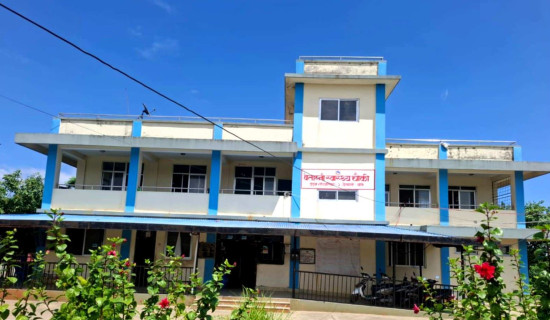- Tuesday, 1 July 2025
Fight For Dignity
In the heart of Lagos, Nigeria, where the streets pulse with energy and the air is thick with the rhythm of a city always in motion, Adaobi walks with quiet defiance. With a height of 1.13 metres, she moves through a world that wasn’t built for her. The stares, the whispers, the dismissive laughter – they have all been part of her reality for as long as she can remember. “People don’t see me as a grown woman,” she says, lifting her chin. “They see a child, a joke, something less.” But Adaobi is not less. She is a trained accountant, a dreamer and a fighter in a battle she never signed up for – the fight to be seen as equal.
Across the city, in a courtroom echoing with the voices of those seeking justice, Adeola faces a different but painfully similar battle. A lawyer in a wheelchair, she has spent years defending the rights of others while struggling to assert her own. The law is her weapon, but even that cannot erase the humiliation of being carried up the courthouse stairs like a burden rather than a professional with a purpose. “I can argue a case with the best of them,” she says, her voice sharp with frustration. “But how can I advocate for justice when I can’t even enter the room where it’s served?”
Their stories intertwine in a cruel irony – two women, both brilliant, both determined, yet both trapped in a society that sees their disabilities before their capabilities. For Adaobi, the struggle is in the workplace, where rejection comes disguised in polite words and apologetic smiles. “They don’t say it’s because of my height,” she says. “But I know. I see the hesitation, the doubt.” For Adeola, it’s in the very institutions meant to uphold fairness. “Justice shouldn’t have a staircase,” she says. “It should have an open door.”
And it’s not just them. Chike, a visually impaired lawyer, recalls the frustration of being denied access to critical court documents. “How do I fight for my client when I can’t even read the evidence?” he asks. Estimates of the number of people with disabilities in Nigeria vary widely due to differing methodologies and persistent data gaps. But according to estimates by the World Health Organisation and the World Bank from 2018, about 29 million people in Nigeria – roughly 15 per cent of the country’s population – were living with a disability.
Data from the 2018 Nigeria Demographic and Health Survey further indicate that approximately seven per cent of household members above the age of five and nine percent of those aged 60 or older experience some level of difficulty in at least one functional domain, such as seeing, hearing, communication, cognition, walking or self-care. Despite Nigeria’s ratification of the UN Convention on the Rights of Persons with Disabilities, people with disabilities continue to face major barriers to education, employment and full participation in society.
Yet, amid the exclusion, there is resilience. There is a movement – a growing, determined chorus of voices demanding to be heard. Social media has become a battleground, where hashtags like #DisabilityIsNotInability echo with stories of perseverance. “We don’t want pity,” Adaobi insists. “We want opportunity.” For them, this is what justice is all about. Opportunity. Fairness. The right to stand – or sit – on equal ground.
-Development And Cooperation

















